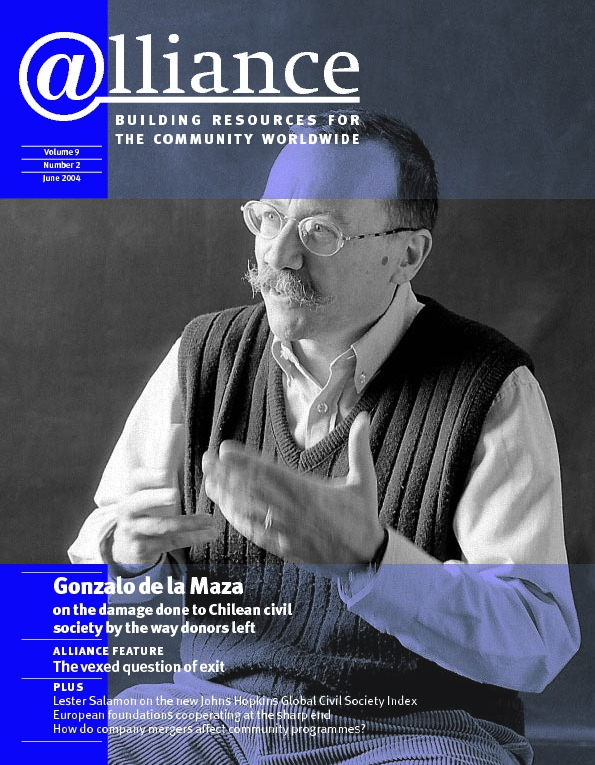My fine arts professor used to incite us with the mantra: ‘there are no new ideas, only recycled old ones’. In his new book, David Bornstein points out that social entrepreneurs (social innovators) have existed ‘throughout the ages’ but social entrepreneurship is now ‘becoming established as a vocation and a mainstream area of inquiry’.
He plays the role of journalist, narrator/storyteller and travel writer to bring to life the real-life struggles, failures and achievements of brilliant ‘social entrepreneurs’ the world round, unearthing some recent, some renowned, all equally brilliant stories of committed ‘pattern-changing’ individuals who have transformed communities and brought lasting social impact/change through their determination and vision of a better world.
French artist Eugène Delacroix once said: ‘What makes men of genius, or rather, what they make, is not new ideas, it is that idea that what has been said has still not been said enough.’ Bornstein is an excellent storyteller – engaging, convincing and articulate with analytical rigour and empathetic grace. Most refreshing is his almost humble honesty in recounting the stories of people he so obviously admires. He seems to genuinely wish to pass on the lessons he has learnt to his readers – part of what he calls the ‘archaeology of social change – how in each generation people build on the foundations laid by previous generations’.
Bornstein is clear and convincing in describing the characteristics that make a social entrepreneur – vision, creativity, communication skills, energy, strong ethical fibre, etc. He then illustrates what makes social entrepreneurs unique, suggesting that the defining characteristic is being not simply an effective innovator but also a steward of quality. His central message is that a true social entrepreneur can not only achieve systemic impact but also capture and illustrate its benefits. He thus focuses on the importance of performance measurement and development of ‘metrics’ that can ‘translate social value’. In his view, a significant obstacle to fostering social entrepreneurship is the lack of ‘arbiters of quality’ – professionals who ‘review’ citizen organizations’ performance. In this spirit, Bornstein does not resist being an arbiter himself, claiming his book is ‘about real people doing real things well’ (added italics).
Bornstein is less clear in defining social entrepreneurship as a phenomenon separate from (or equivalent to) the growth of the ‘global citizen sector’ more broadly. He draws heavily on Ashoka’s experience (most of the social entrepreneurs highlighted were identified through the Ashoka network) and therefore focuses on the concept of the individual social entrepreneur. However, the implicit focus of the book remains on developing more effective social organizations. Bornstein quotes Ashoka’s Bill Drayton as saying: ‘It’s not just the leading entrepreneurs that make it happen; it’s all the other actors.’ In nearly every example, of central importance to the success of the social entrepreneur was their ability to assemble a strong team and develop and sustain a strong organization to make their vision a reality. Drayton recognized the central importance of this when starting Ashoka.
Bornstein’s conclusion focuses on the ‘capital allocation’ problem, rightly arguing that the greatest obstacle remains how individuals can access the financing, support and recognition they need to increase their impact. He again attributes this problem to the need for better performance metrics for social impact. Failure to develop better feedback mechanisms, he argues, will ‘guarantee that society will continue to underfund its most promising ideas and its most dedicated social entrepreneurs’.
While giving funders sufficient information to help educate their ‘investment’ decisions may be a critical part of the equation, Bornstein attributes too much importance to redirecting limited philanthropic resources from ‘ineffective’ enterprises to more promising social entrepreneurs. The far more urgent challenge (certainly in the context of a book dedicated to systemic change) is, as Borstein also notes, to identify new financing sources and strategies beyond simply philanthropy to enable social entrepreneurs to scale up their activities to more significant levels.
Lee Davis is co-founder and CEO of NESsT (Nonprofit Enterprise and Self-sustainability Team). He can be contacted at ldavis@nesst.org
How to Change the World – Social entrepreneurs and the power of new ideas
David Bornstein Oxford University Press £13.99
ISBN 0195138058
To order contact Oxford University Press.
Tel +44 1536 741 727/ 454 534
Fax +44 1536 746 337
Website http://www.oup.co.uk/isbn/0-19-513805-8


Comments (0)